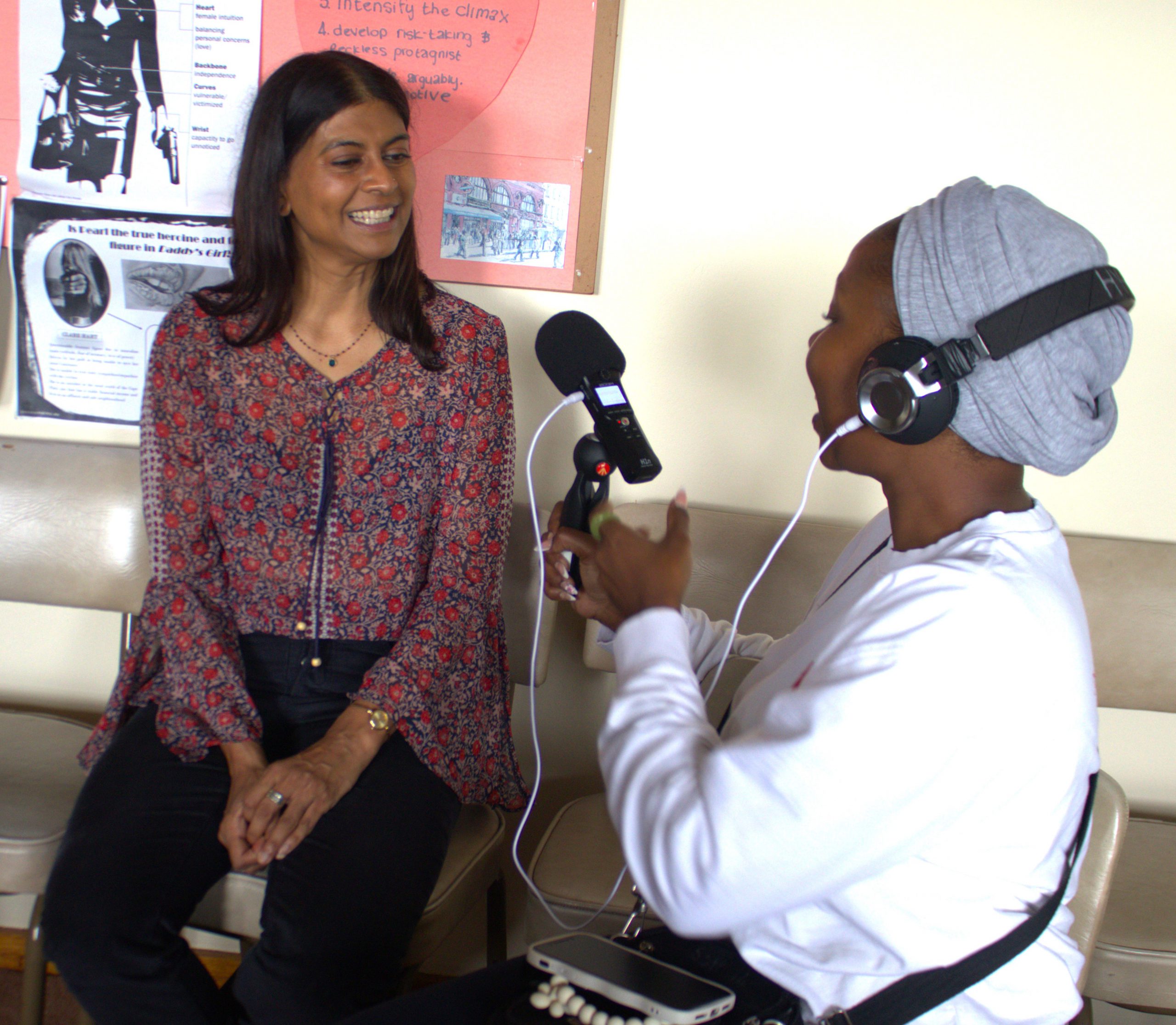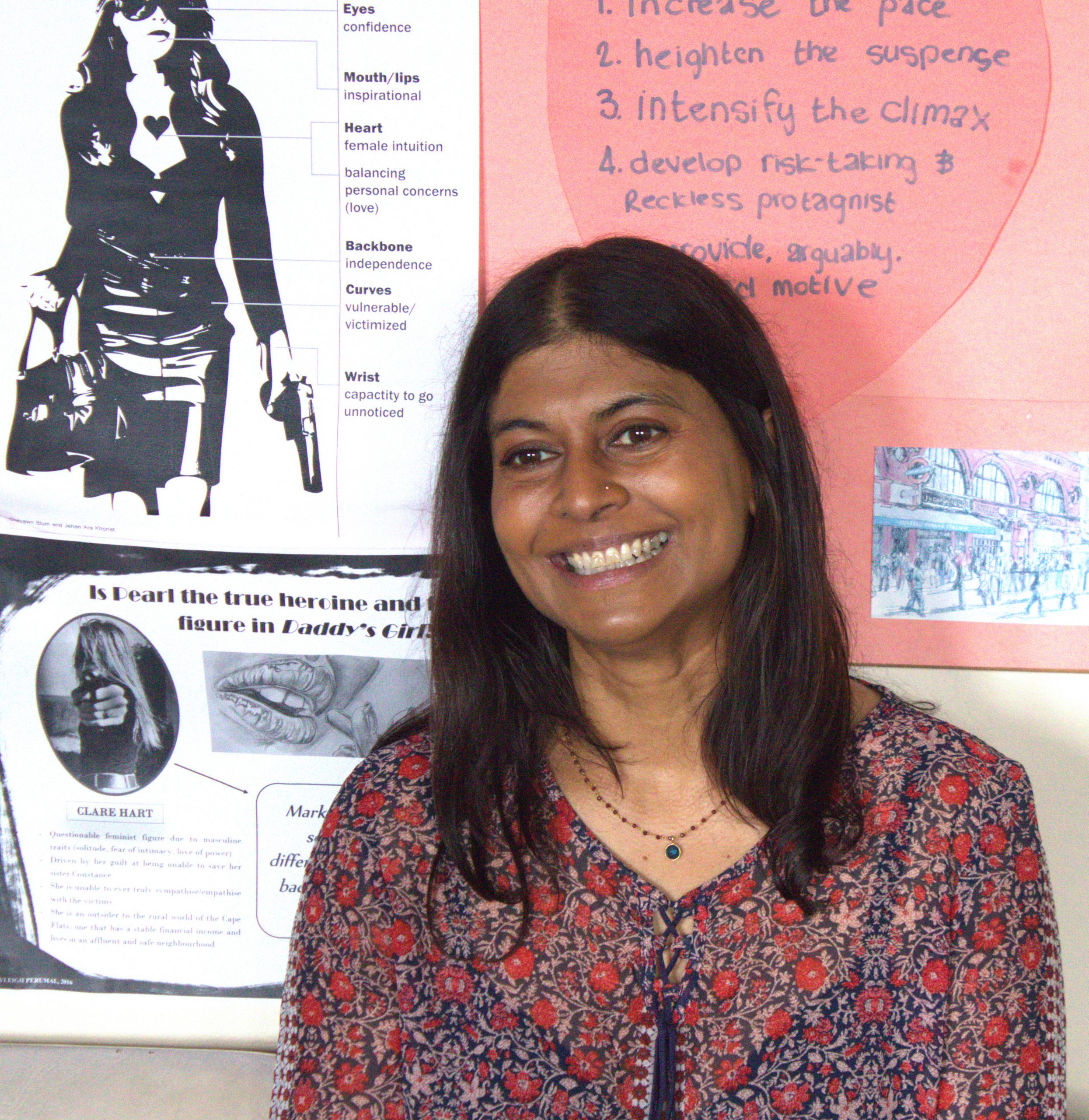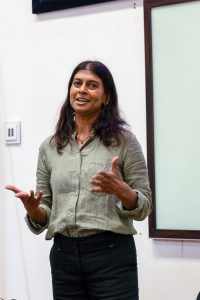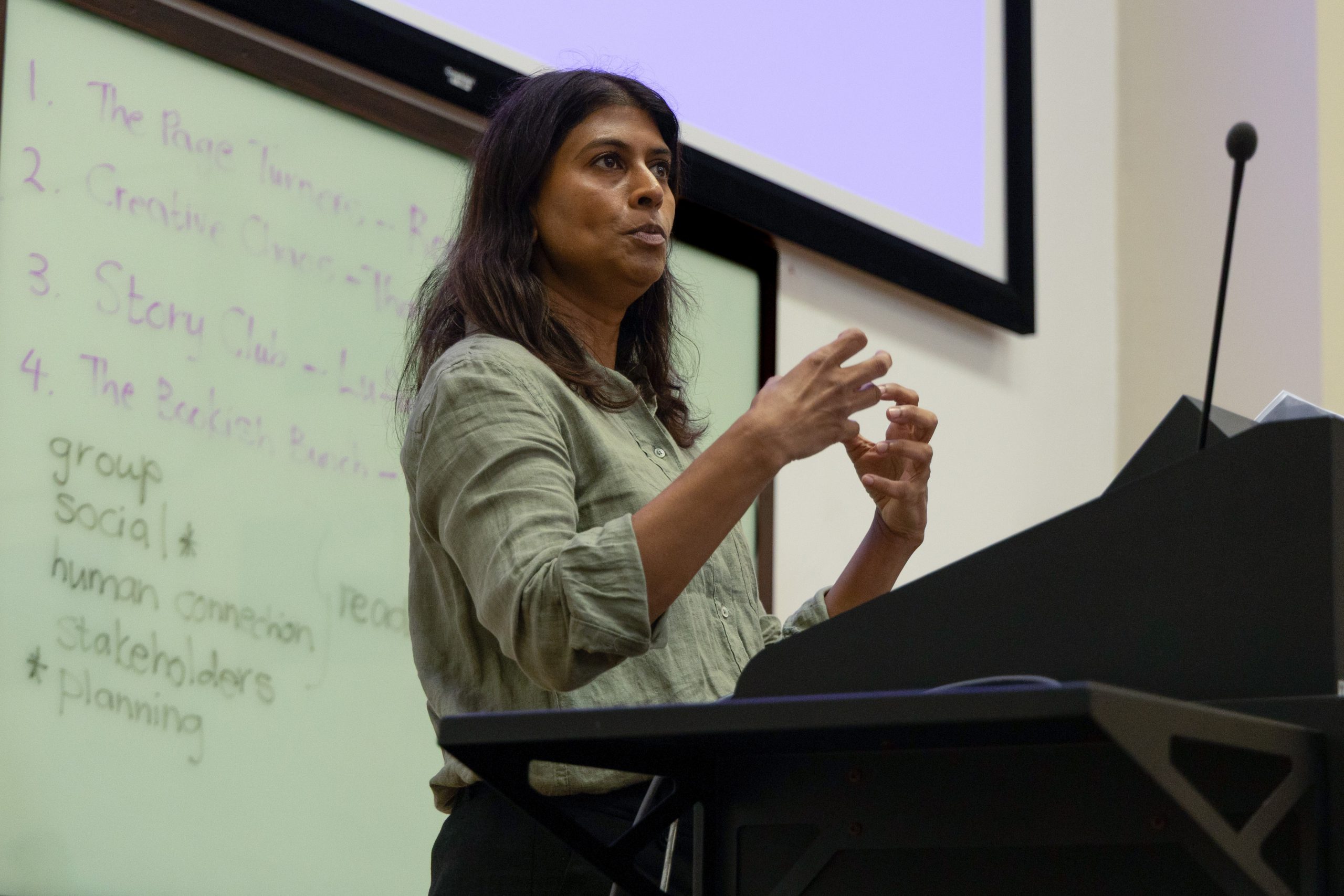By Siyosile Fikizolo, Thandiwe Johnson and Sayuri Persotham
Prof Sam Naidu’s long and undimmed commitment to Makhanda reading clubs has been recognised with a prestigious Vice-Chancellor’s Distinguished Community Engagement Award.
For many years, Naidu facilitated the Community Engagement Reading Clubs Orientation (CERCO) course for Rhodes students who volunteer to run reading clubs with local learners. Her academic interests, focused on South African crime fiction, African literature and transnational literature, are seamlessly integrated into her community initiatives, promoting a dynamic learning environment that encourages learners from local schools to engage with literature.
Her students and colleagues have heaped praise on her work.
Anna Kinsler of Rhodes University Community Engagement (RUCE) nominated Naidu for the award. “Sam’s work is intrinsic to who she is both as a person and as a professional,” Kinsler said.
Nompumelelo Frans, a teacher at CM Vellem Primary School, said: “Samantha’s programme made such a difference in improving the reading skills of our township and developing the love of reading.”
Part of the extensive citation for her award read: “In all her CE efforts, she [Naidu] emphasises the need for compassion, empathy and reciprocity to address the fractures in our society and to build strong, ethical citizens of the future.”
Naidu said the award was not an individual effort. “It’s a collaboration over a number of years. I could not have done this without RUCE, the funding from Rhodes, all those student volunteers, all those wonderful teachers at the school who’ve worked with me, and all those young learners who are so enthusiastic about Reading Club – they bring their joy and their enthusiasm, only children can,” she said.

Naidu began her community engagement journey as a second-year student at Rhodes University in 1991 when she joined Rusco, a student community organisation that worked with street children. “At that time, there were lots of young school-age children who used to sleep under the bridge. There was a lot of glue sniffing. It was a very, very sad situation,” Naidu said.
“I went once a week to read with the children, and we also played games, sports, and board games, and we took them on outings to the beach. Many of them had never been to the beach; they’d never seen the sea.
“They were orphans, and some of them didn’t have any adults caring for them. And we tried our best to help them, especially with mental wellness, because a lot of them were deeply troubled and traumatised,” she said.
“There’s nothing really quite like feeling that you’ve helped another person, even in a small way. I realised that we couldn’t radically transform the lives of those young people. We couldn’t suddenly give them parents and guardians and a nice, safe home. But at least once a week, we could make them feel like they are special, that they’re being cared for, and that someone cares about their welfare,” Naidu said.
“That can make a difference in someone’s life. And if you maybe develop and foster in them some skill, they can use those skills going forward, and maybe, just maybe, they can have a better future.”

Naidu was also involved in community projects when she was a PhD student at the University of London, but most of her community engagement work has been around the Makanda community: “This is where I’m really embedded. I have strong ties here.”
“Makanda and the Eastern Cape, in general, is a seriously disadvantaged area historically, and I think that our schools are really failing our youth. I have the good fortune of working with some excellent teachers, but it’s not individuals; it’s the system.
“Our young people come through the schooling system without actually achieving full literacy, so they’re not ready for tertiary education. Understanding and identifying that, and then responding, has been at the heart of all of my community engagement work.
“I’ve always been a huge, huge fan of English literature. I love how reading can open up worlds and empower you to communicate clearly and articulately whatever the context, whether I’m working as a journalist in London or as an academic at Brunel University, where I worked for several years, or at Rhodes as a lecturer and researcher—reading lies at the heart of my skills. So knowing the value of that, I felt the need or had the desire to inculcate that in others, in young learners,” Naidu said.
“One weakness that I have encountered in community engagement was logistics, where you will find that the school is closed because of the water crisis,” Naidu said.
Beyond her community work, Naidu has made a name for herself as a distinguished literacy scholar. In 2019, she co-authored South African Crime Fiction: Critical Analysis and Publishing History, a work that earned a Vice-Chancellor’s Book award for its contribution to literary scholarship. Her research contributed to shaping discussions around crime fiction, identity and African representation in South Africa.
Naidu is supporting Journalism and Media Studies students with their Reading & Writing (RAW) Clubs at Ntsika and Nyaluza high schools this year.

“I will continue to do what I do, promoting reading culture, trying to get Rhodes students and learners in the Makhanda district to understand the value of reading and start getting them to appreciate the joy of reading so it does not feel like a task,” Naidu said.
Which author would she recommend to young people?
“Chimamanda Ngozi Adichie is a very big favourite. I would recommend her to anyone looking for a really lovely, moving, historically informative, but exciting story to read: Half of a Yellow Sun, Purple Hibiscus, Americana – any one of those texts. I think she writes beautifully.
“I love Adichie herself. You can listen to her TED Talks. You can listen to Beyoncé sampling her TED Talk on her 2012 song Flawless. So all kinds of references there for young people. That would be my number one recommendation,” she said.


